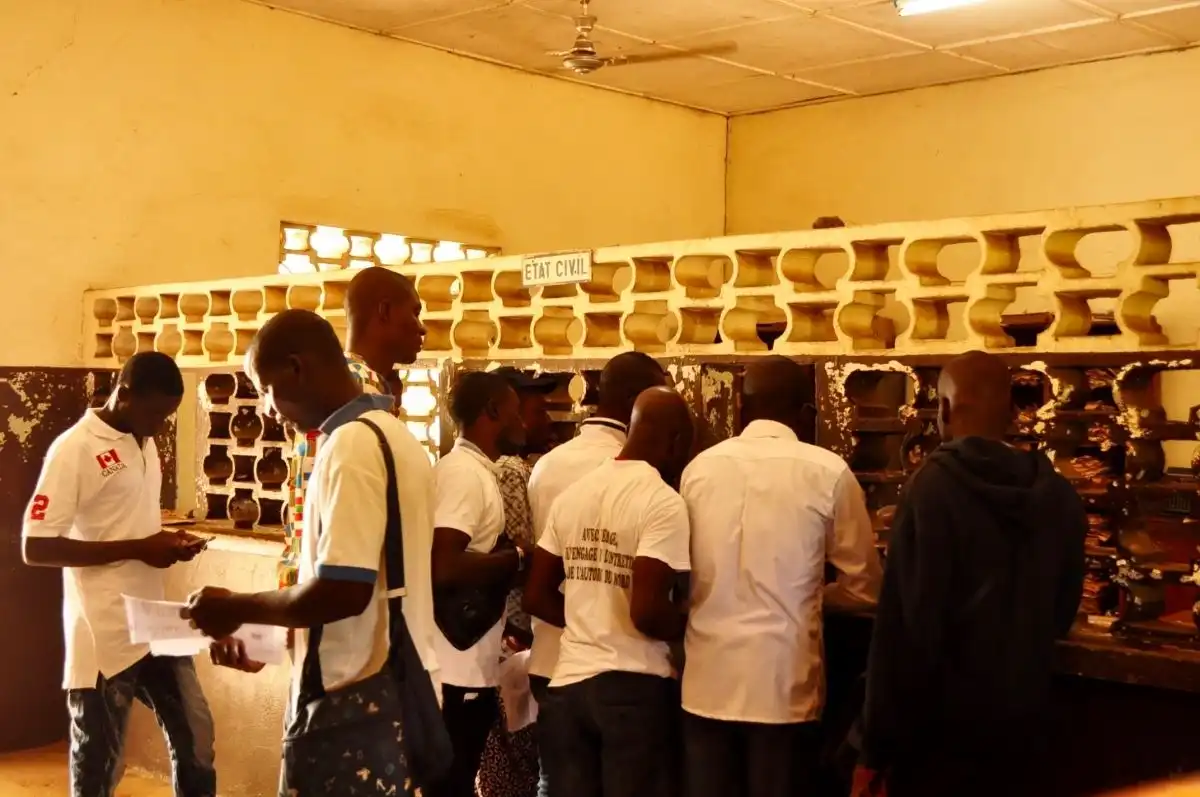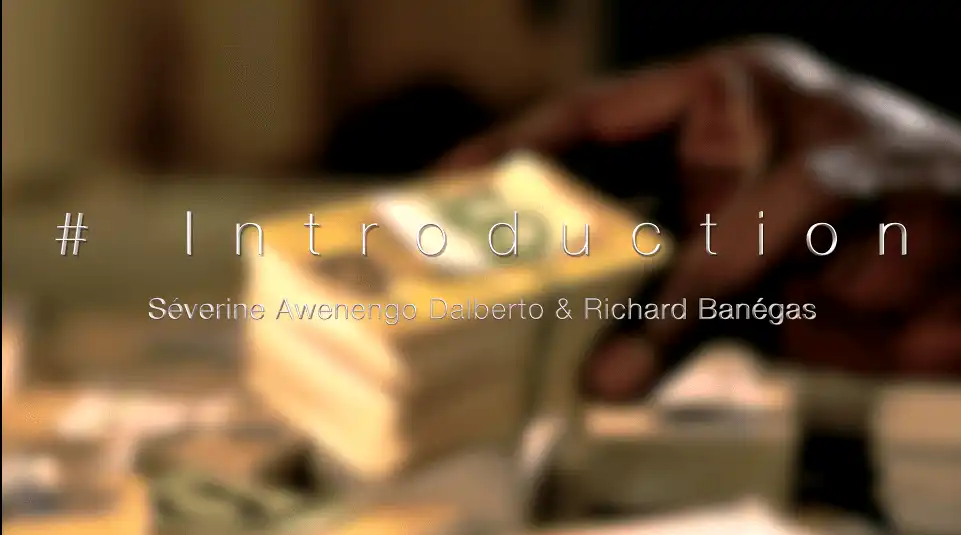Home>Identification and Citizenship in Africa. Presenting a Book and a Web Series
20.05.2021
Identification and Citizenship in Africa. Presenting a Book and a Web Series
In the context of a global biometric turn, the book presented here and in the web series (Identification and Citizenship in Africa. Biometrics, the Documentary State and Bureaucratic Writings of the Self, edited by Séverine Awenengo Dalberto and Richard Banégas (London, Routledge, 2021) investigates processes of identification in Africa “from below”, asking what this means for the relationship between citizens and the state.
Almost half of the population of the African continent is thought to lack a legal identity, and many states see biometric technology as a reliable and efficient solution to the problem. However, this book shows that biometrics, far from securing identities and minimizing fraud or political distrust, can even participate in reinforcing exclusion and polarising debates on citizenship and national belonging. It highlights the social and political embeddedness of legal identities and the resilience of the documentary state. Drawing on empirical research conducted across 13 countries, the project— and the edited volume—documents the processes, practices, and meanings of legal identification in Africa from the 1950s right up to the biometric boom. Beyond the classic opposition between surveillance and recognition, it demonstrates how analysing the social uses of identity papers and tools of identification can give a fresh account of the state at work, the practices of citizenship, and the role of bureaucracy in the writing of the self in African societies.
Why?
The starting point for this collective research was a twofold observation. The dearth of research on legal identification and personal identity documents in Africa contrasted sharply with the role that they seem to play in many contemporary political crises. Most of these crises are conflicts over citizenship about “who is who?”: who is a national and who is not, who is a good citizen and what are the political and social criteria that define a real and a fake citizen? Conflicts often crystallise around the issue of ID delivery and the recognition of legal identities which are key for economic development and political participation. These questions are not only raised in times of crisis; they arise in the banality of ordinary social life where papers are central means not only of claiming and securing (individual and collective) political and social rights, but also of status recognition.
Since the 2000s, biometric technologies have been marketed as a magical solution to fill what is called by the World Bank the “identity gap” and the weakness of civil registration in Africa. This technicist and globalising evaluation precludes an understanding of national disparities and obfuscates the political issues at stake in the biometric modernisation of legal identities. As our research shows, it also hinges on the invisibilisation and disqualification of the multifaceted systems of identification of persons and their social and cultural roots in Africa. Our research aimed at reflecting upon this digital turn and its effects on citizenship, the state, and social relations: do the logics of the “biometric state” radically alter those of the “documentary state” in Africa, leading to a radically different conception of power and belonging? Do the new technologies contribute to a de-socialisation and a de-politicisation of identities? Are they another step toward increased surveillance or a tool for social inclusion? Identity documents were analysed as heuristic empirical entry points to shed new light on state formation and citizenship issues in Africa. This investigation demonstrated the deep social and historical embeddedness of identification practices in African societies.

Bouaflé subprefecture, Côte d'Ivoire, January 2019. Copyright: Richard Banégas
Who?
This book is the result of a collective research programme—The Social and Political Life of Identity Documents in Africa —coordinated by Séverine Awenengo Dalberto (Historian, CNRS-IMAf) and Richard Banégas (Political scientist, Sciences Po-CERI). This programme was supported by the French National Research Agency (ANR) and hosted by two research centres (Sciences Po’s Centre for International Research and the Institute of African Worlds [IMAf]), in collaboration with African universities (notably in Senegal and South Africa). The project initially involved some 15 researchers working in eleven countries in sub-Saharan Africa (Burkina Faso, Cameroon, Chad, Côte d’Ivoire, Kenya, Mauritania, Nigeria, Uganda, Rwanda, Senegal, and South Africa). The multidisciplinary team of junior and senior researchers—historians, political scientists, anthropologists, and sociologists—gradually expanded over five years of fieldwork and archival research to cover Guinea and Morocco as well.(1)
How?
The fieldwork was carried out from a dual perspective: “from above”, to study identification apparatuses as technologies of power, but especially “from below”, to move beyond the usual state-centric paradigm and grasp the social depth of legal identities. The intention was obviously not to oppose these two scales of observation but, on the contrary, to underline their entanglement. Following the work of Arjun Appadurai, we also wanted to focus on the material culture of papers, and be able to trace and recount their social lives and sometimes singular biographies (Kopytoff). During their fieldwork, the team members constantly navigated between the offices of government agencies and the social and, in some cases, private and intimate spaces of individuals. Indeed, this ethnography of the government of papers was not confined to the air-conditioned offices of central administrations or biometric multinationals. It also included fieldwork investigating the local authorities that issue documents and constitute the “outposts” of the paper identity apparatus, particularly in rural areas. Some studies sought to capture the complex relationship between personal identity and paper identity at the level of individual experience. One of the unique qualities of this volume lies in this shift in perspective toward the other bodies that produce “papers”; another is the attention paid to how ordinary citizens put these papers to social and individual use.
What? A Web Series on “The Social and Political Life of Identity Papers in Africa”

Several authors of the book present their personal research and contributions:
- Introduction: The Social Life of Identity Papers in Africa, Séverine Awenengo Dalberto & Richard Banégas
- Episode 1: Biometric Voting in Africa, Marielle Debos
- Episode 2: The Biometric Making of Disposable Citizens in Northern Cameroon, Claude Mbowou
- Episode 3: Forgery and Identity Brokerage in Côte d’Ivoire, Richard Banégas
- Episode 4: Legal Identification and Imperial Citizenship in Senegal, Séverine Awenengo Dalberto
- Episode 5: Identity Cards and Genocide against the Tutsi in Rwanda, Florent Piton
- Episode 6: Citizens of Controlled Origin in Nigeria, Laurent Fourchard
- Episode 7: Identifying Dead Migrants in the Mediterranean, Alimou Diallo
- Episode 8: Biometric Registration of Refugees in Burkina Faso, Nora Bardelli
- Episode 9: Village Identity Papers and Moral Homelands in Uganda, Florence Brisset-Foucault
- Episode 10: The Maragoli’s Quest for Citizenship in Uganda, Sandrine Perrot
- Episode 11: The Bureaucratisation of Self-Defense in Burkina Faso, Romane Da Cunha Dupuy
Further reading
- Awenengo Dalberto S., Banégas R. (dir.) « Citoyens de papier » , Genèses, n°112, septembre 2018, pp. 3-103.
- Awenengo Dalberto S., Banégas R., Cutolo A. (dir.) Biomaitriser les identités ? , Politique africaine, n°152, 2018, pp. 5-163.
- Awenengo Dalberto S, « La première carte d’identité d’Afrique occidentale française (1946-1960). Identifier et s’identifier au Sénégal au temps de la citoyenneté impériale », Annales. Histoire, Sciences Sociales, vol. 75e année, no. 1, 2020, pp. 113-151, https://doi.org/10.1017/ahss.2020.114
Links
- PIAF on the CERI's website;
- The project's blog.
- Visit the publisher's webpage.
Cover image : Bouaflé subprefecture, Côte d'Ivoire, January 2019. Copyright: Richard Banégas
-------
Notes
- 1. In particular, to include the members of the IHA (Paris)—CREPOS programme “Identity, Identification and Bureaucratization in Sub-Saharan Africa (19th-20th century)” (2015–2018) established at the University Cheikh Anta Diop of Dakar and coordinated by Séverine Awenengo Dalberto, with the financial support of the Max Weber Foundation.
Follow us
Contact us
Media Contact
Coralie Meyer
Phone : +33 (0)1 58 71 70 85
coralie.meyer@sciencespo.fr
Corinne Deloy
Phone : +33 (0)1 58 71 70 68
corinne.deloy@sciencespo.fr
